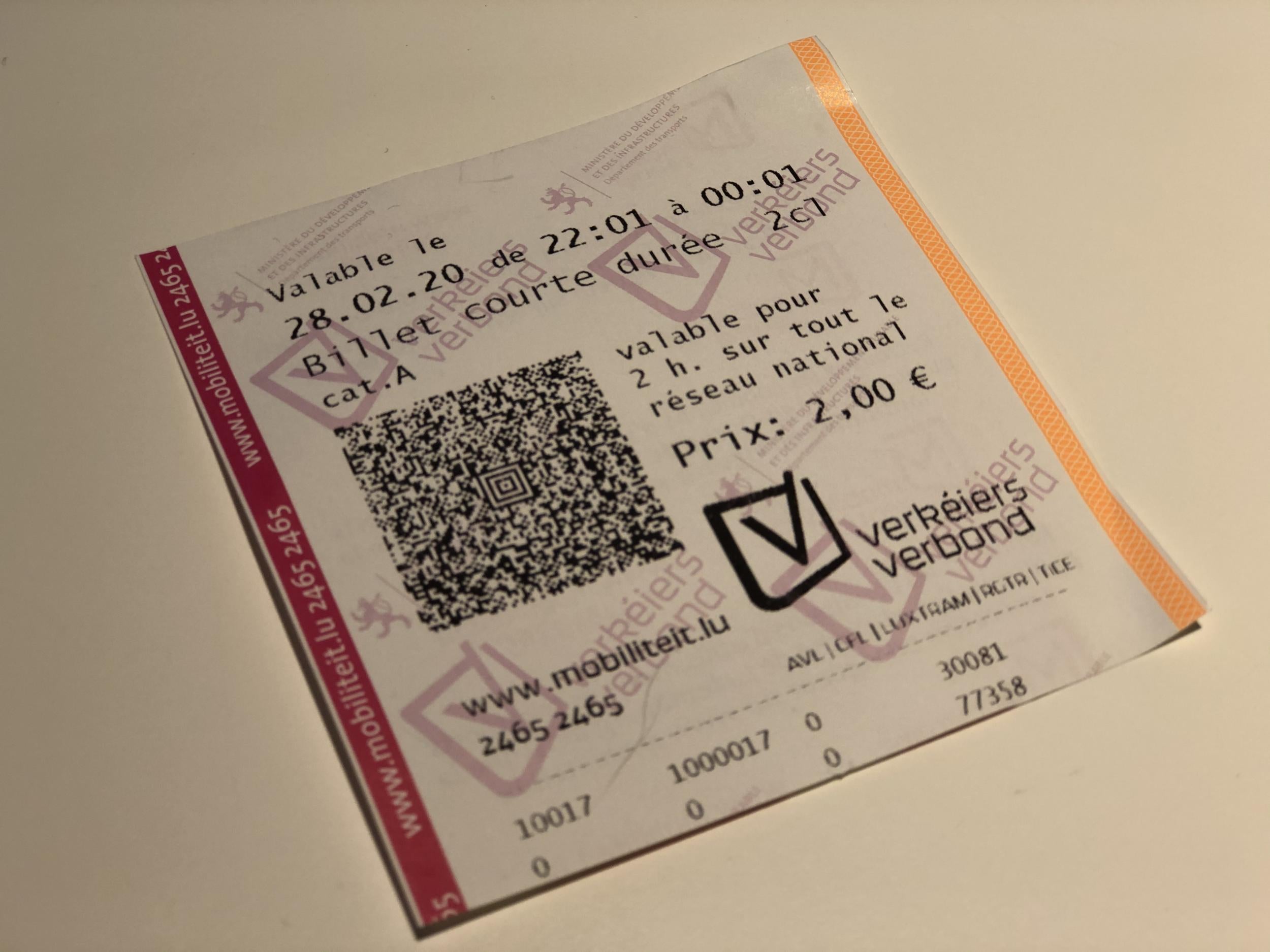‘Like the first step on the moon’: Luxembourg makes history as first country with free public transport
‘Mobility is one of the most important challenges of humanity in the 21st century,’ says deputy prime minister
Luxembourg may be a country only the size of Oxfordshire, but the government is making big claims for its abolition of fares on public transport – comparing the move with “the invention of the wheel, the arrival of the internet”.
The mobility ministry says 29 February 2020, the day nationwide ticketless travel began, “will become a date anchored in history, just like the first step on the moon”.
The last opportunity to pay the nationwide £1.70 (€2) flat fare was on bus number 6 in a suburb of the capital at 11.59pm on Friday 28 February.
Citizens, expatriates and visitors can now enjoy permanent free travel throughout the Grand Duchy.
“It’s fantastic,” said one of the first beneficiaries: Rosalind Brown, a marketing and communications specialist who has lived in the capital for 22 years.

“It does encourage you to hop on the tram. I’m really glad that Luxembourg is the first country to do it. I hope others follow.”
The policy has been launched by Luxembourg’s deputy prime minister – and mobility minister – François Bausch.
“The system that we developed in the last century cannot function any more,” he told The Independent.
“Everywhere we have congestion problems, the quality of life in urban areas is going down.
“If we organise the big urban areas, this will help with climate change.”
Luxembourg’s transport system costs £430m (€500m) annually, with fare revenue of £35m (€41m) meeting barely 8 per cent of the total.
The Grand Duchy is thriving economically but has severe problems with traffic. Luxembourg has more cars per capita than any other country in the European Union.
In Luxembourg City, where many expatriates from across Europe and the world live and work, there is strong backing for the new policy.
Marija from Croatia, who works in a bar, said: “We pay high taxes, so it’s good to get something back.”
Among many Luxembourgers, though, the move will make little difference to their travel plans: only one in five commuters currently uses public transport.
Each working day, the country’s population is augmented by 220,000 employees who commute from Belgium, France and Germany. There are fears that some of them may drive just across the border and park in a small town or villages, then jump on a free bus or train to reach their workplace.
But the deputy prime minister said that Luxembourg’s government has spent £103m (€120m) across the border in France to improve rail links and lure commuters from car to train.
“Mobility is one of the most important challenges of humanity in the 21st century,” said Mr Bausch.
Not every aspect of public transport is free: commuters who want to “work in serenity” can pay an extra €3 to travel first class on trains.
Join our commenting forum
Join thought-provoking conversations, follow other Independent readers and see their replies
0Comments